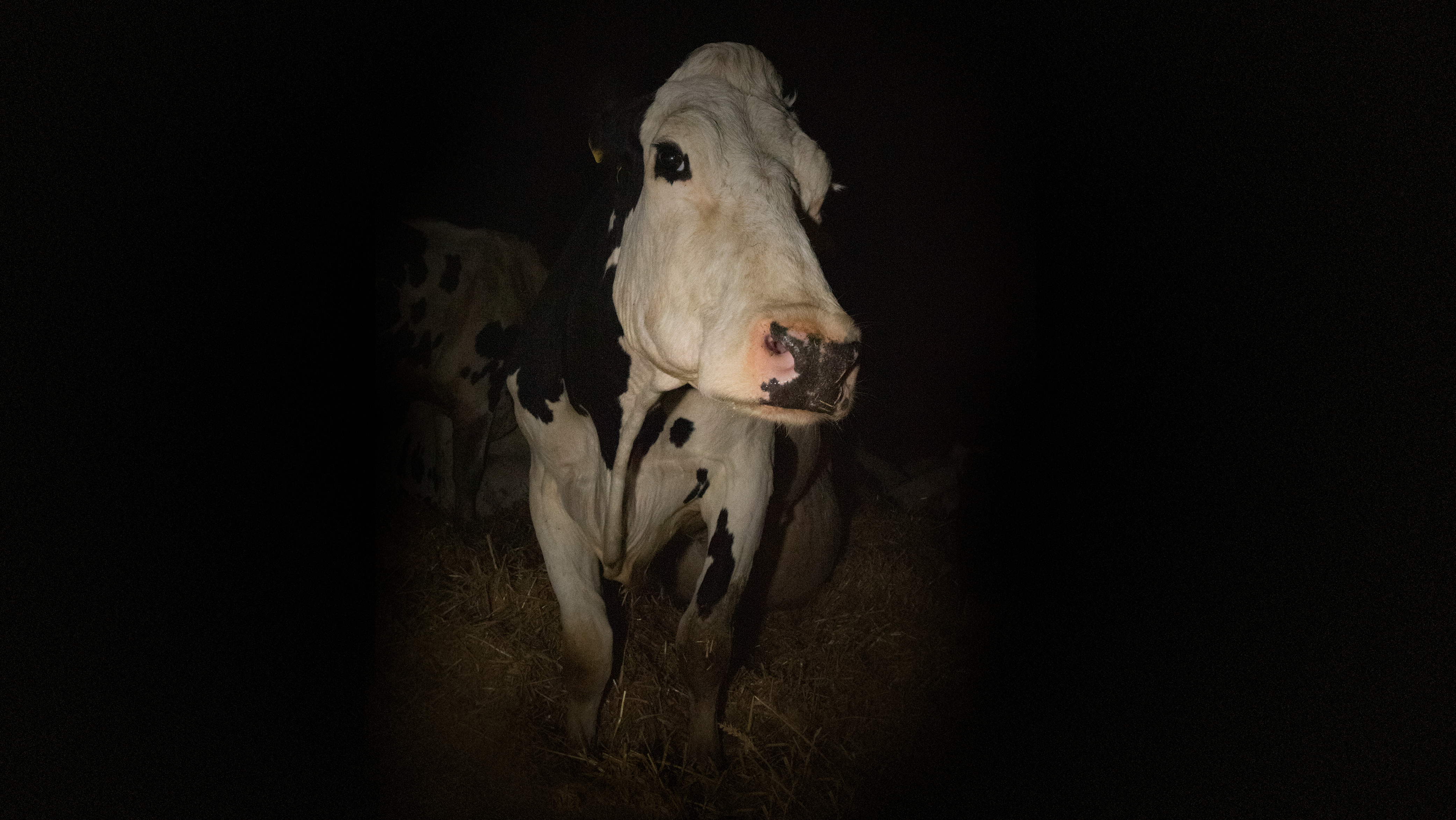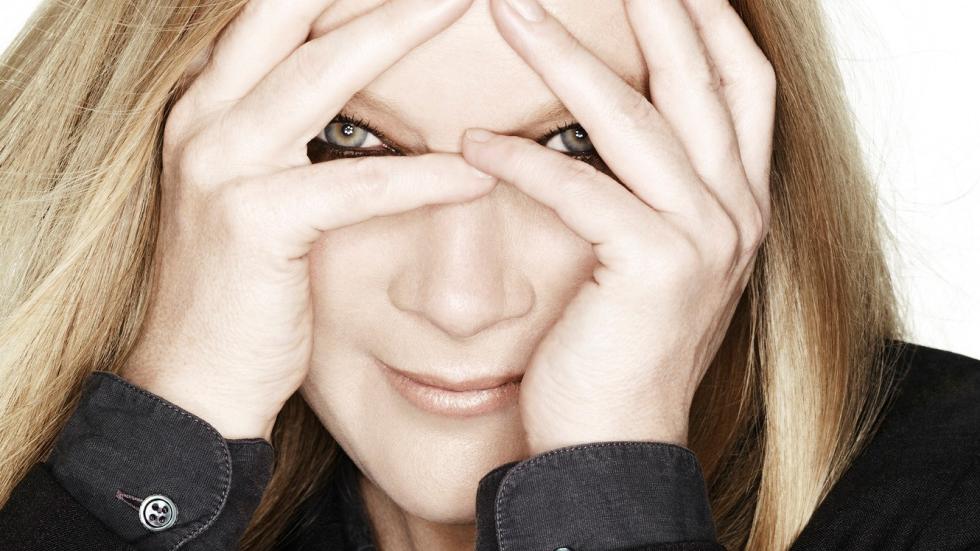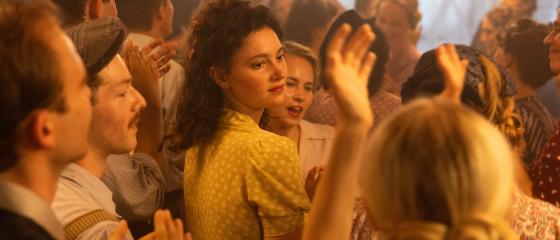The filmic imagination of Andrea Arnold (Erith, Kent, 1961) has been linked to British creators of previous generations, such as Ken Loach or Alan Clarke. But her avant-garde style goes much further, as well as her fondness for working-class characters, with difficult or bleak lives, goes much further. Her taste for observing the reality that surrounds her as a starting point for her screenplays is key to her work. And her films display a personal stamp that reflects her origins: "I grew up in a working-class family, so you could say that I write about what I know. But, unlike what some critics have said about my work, I don't think my films are dark and desolate," she says.
Child of a teenage mother, who by the age of 22 had four children, Andrea Arnold left school at 16 to become independent at 18. She moved to London and joined a dance troupe called Zoo, performing on Top of the Pops. Later, she dabbled in acting (you can find her in YouTube and in an episode of the 1980s children's show No. 73, gliding on roller skates). "Doing TV was a lot of fun, but I never felt very comfortable in front of the camera. After learning screenwriting at PAL Labs in Kent, she moved to Los Angeles in her twenties to study at the American Film Institute.
With her first short films, Milk (1998), Dog (2001) and, above all, Wasp (2004), for which she won the Oscar for Best Short Film, she made a name for herself. She debuted in feature length with Red Road (2006), which won the Jury Prize at the Cannes Festival. This award was repeated with Fish Tank (2009), her true international revelation, premiered, by the way, at the Seville Festival. She went on to win a third with American Honey (2016).
Having worked on TV series such as Transparent and I Love Dick, Arnold recently experienced the dictatorship of the entertainment industry at first hand, when the creative control of the second season of the HBO series Big Little Lies was taken away from her, to fall into the hands of Jean-Marc Vallée, the showrunner and director of the first season. An episode that Arnold has not spoken about publicly, although asked at the press conference to present Cow at the Cannes Film Festival: "We edited the film at the same time that I was editing Big Little Lies, with five editors! But I'm not going to talk about that experience. I learned a lot from it, I won't say anything else.
She now arrives at the Official Section of the Seville Festival with Cow, also presented at Cannes. A film that uses observation to follow Luma, a dairy cow whose existence is defined by an infinite cycle of calving and milk production. At the same time, it is a film that aims to turn this creature into someone with desires, fears and feelings.
Let's find out more about Andrea Arnold from statements collected in various interviews:
Social Cinema
"I can't argue that I'm attracted to characters who are marginalised or excluded from society: I make my films from a social point of view. That's how I see the world. I don't have a choice, somehow it seems that their stories choose me to tell them".
Making uncomfortable films
"I guess the only thing I can think of to explain why these films are intense experiences for me is that I share in the point of view of their protagonists, the viewer always goes with them, sees the world through their eyes and experiences things as they experience them. I try to be fully honest and empathetic.
Shooting
" People say that I'm very clear about what I want. And it's true that I can be quite intransigent if I believe in an idea, I stick to it like a pit bull. Generally, if you can't get something on a shoot, it's because of a lack of money. If it's a question of convincing someone, then I keep trying without giving up. But it's also true that a lot of decisions end up not being my own, because sometimes you discover in someone else's suggestion something better than what you had thought of.
A taste for non-professional performers
"I like to track down faces that fit my idea. In Fish Tank, for example, it was clear to me that mixing an inexperienced actress like Katie Jarvis with someone as experienced as Michael Fassbender was going to be an interesting process. They helped each other and learned from each other. Katie's naturalness influenced everyone around her. And Katie also learned a lot from Michael. For American Honey I looked in supermarkets and car parks, and that's absolutely exciting, you meet all kinds of people, you really could sit there all day and have fun watching interesting people go by. And yes, I also worked with Shia LaBeouf, who I have a lot of respect for despite his bad reputation: a lot of the things people said to me before the shoot made me angry, because they didn't talk about Shia as the human being I had known him to be. It's so easy to be cruel... Fortunately I don't go by the things I read in the media or on the internet. He's grown up as a celebrity with all that goes with it, and he hasn't stopped challenging that status, which I respect a lot. There are very few rebels in Hollywood. A few more free spirits would make life more interesting.
Peering into US cinema
"Shooting American Honey was born out of a flight delay at an airport. I went up to the counter of a car rental company, they had a car available and I decided to take it with me. It was all very impulsive, but it felt great. I got in the car and decided to explore a bit of America. The trip lasted ten days and was the first of several road trips. I went through the south, the middle of the country, everywhere. I connected emotionally with America, a vast and complicated place full of all kinds of truths and contradictions. Without that connection I couldn't have made American Honey. The film is a mix of what I saw and learned on those trips, but also what I had seen in the movies when I was growing up: the mythical America of westerns and road movies.
Writing scripts
"I read somewhere that writing has a lot to do with sculpting. The form is already in the stone, you just have to find it. I love that comparison, and I feel that, on one level or another, it can be applied to anything you do. When you start writing something, I feel like the base already exists in some way and it's just a matter of finding it. I like the idea of identifying that foundation. I write a kind of outline, a rough idea, which is just a guide to get it started. Then it will change, it will always change, as you start to follow the characters and the paths they take".
Inspiration
"When people ask me about where my inspiration comes from, I would say that my first answer is from life itself. Walking or sitting on the bus and looking at people. I always see things that make me think, and that excites me. I would say I'm an observer, actually I think we all are a little bit. People who know me well say that I notice things that other people don't notice. For example, the other day I saw a woman walking towards the station. It was very cold, it had snowed, she was with a bunch of children and she was pushing a pram uphill. I saw she was trying to catch a train. She had sweatpants on and they had fallen down, and you could see the flesh on her back. It seemed so intimate to me... I was behind her, and I started to imagine her whole life. That's the kind of thing I write about. I always say that all my films started with images like that as a starting point. Sometimes those images also come to my mind out of nowhere. That's just how I work. When people ask me where the ideas for my films come from? I simply have to walk through the streets! There are a thousand faces and you can imagine a thousand lives. There is drama in every life, actually.
References
"I like Haneke, Lynch, Terrence Malick and the Dardenne brothers. And Andrei Tarkovsky, I know not everybody likes him, but I love his cinema. I don't know what he does or how he achieves it, but I always react very emotionally to his films, they have a very deep impact on me".
Dance
"At 17 I joined the Laban Dance Centre, one of London's leading dance schools, without any more or less official ballet training. Dance is the secret of everything. I keep dancing, to relax. When you're done, you feel like you've slept with a hundred people".

Vaca by Andrea Arnold
Cow: a unique approach to nature
"Many of us see nature through a romantic prism. There is an attitude of posturing, like, are we going to have a picnic and experience nature? We engage with the romantic idea as opposed to the reality of it. In the case of Cow, I think I realised early on that the eyes of the cow Luma were everything. You could really see through her eyes. I realised that I had to accompany her in her experience. The idea was to involve the viewer in a non-human consciousness, to show consciousness in a living non-human animal. We shot for four years, and we didn't manipulate anything: you couldn't, and didn't want to, orchestrate anything. I had ideas about what might happen, but what happened, happened. And I don't think Cow is strictly a documentary. I don't know what it is, but it's not a documentary, of course? What is a documentary really?
The natural vs. the industrial
" The fact that in films like Fish Tank or American Honey there's this clash between the industrial and the natural, I suppose it has to do with my relationship with nature as a child. I grew up on a very urban farm, but there were very rural places around me. At the age of four or five I was playing outside unattended by anyone, and without realising it I started to experience a real connection with my environment because I was exploring all the time, going down gravel pits, getting into the woods and rivers, getting close to the industrial sites and the other properties. I would bring home stray puppies I found, and once we even had a lamb, which grew up in our garden. We never sheared it, poor thing, it lived very warmly. I've always felt a certain sadness about man's disconnection with nature. Filming Cow made me think about my childhood and my relationship with nature".
* Statements taken from interviews in The Guardian, The Playlist, IndieWire, The New Yorker, The Filmmaker and Variety.







